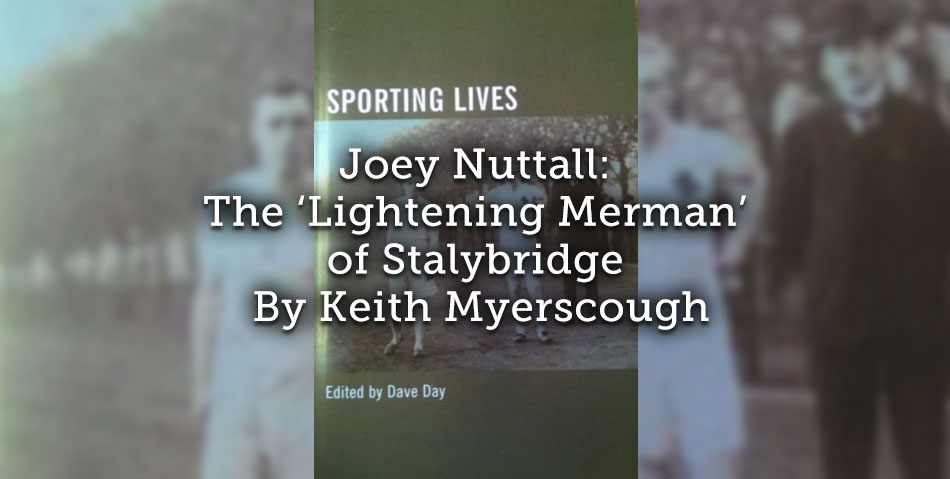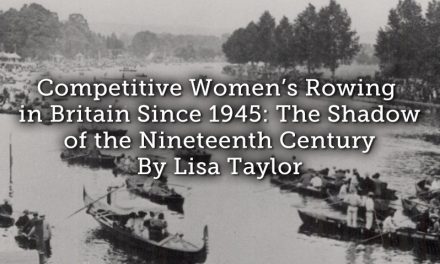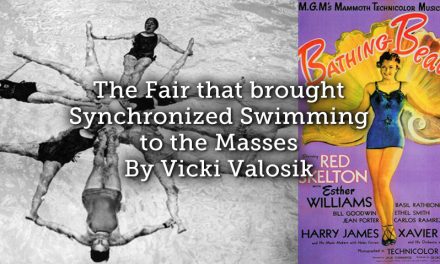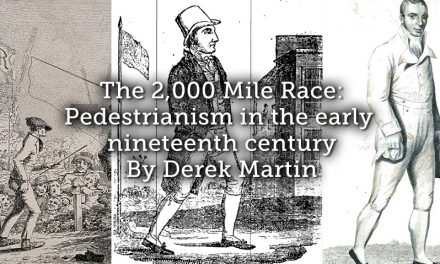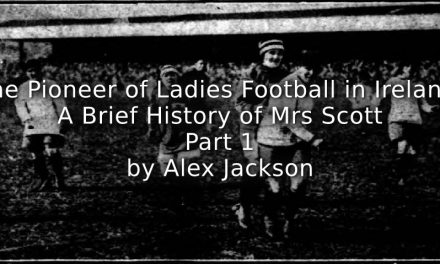Playing Pasts is delighted to present this podcast by Keith Myerscough from the Sporting Lives symposium hosted by Manchester Metropolitan University’s Institute for Performance Research. Subsequently the papers were published into a collection of the same name, for details see – bit.ly/2GPhdI3
It was against a background of great social and economic upheaval that Joey Nuttall found a means of earning a living outside his family home in the Lancashire mill-town of Stalybridge. As industrial migrants, the Nuttall family had moved some six miles (10km) from Hulme, in Manchester to Stalybridge in 1870. At this time Joey was only a year old but the new public baths was to provide the family with a means for ‘rational recreation’ and an opportunity to bathe their bodies and wash their cloths in purpose-built facilities. Joey and his siblings were to grow up in an environment where the baths became a central focus of their early lives. Having outgrown the ‘novelty’ of swimming in the local Huddersfield Narrow Canal and washing in the River Tame, the Nuttall family were to make full use of the local ‘penny scrub’. By 1884, at the age of fourteen, Joey was earning a living as a coal hawker during the day and entering swimming events in his leisure time; his destiny to be determined through his exploits as a ‘speed’ swimmer…
Article © Keith Myerscough
Press play below to listen to the rest of the paper:

